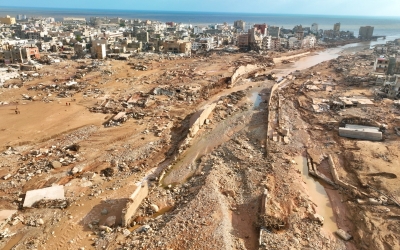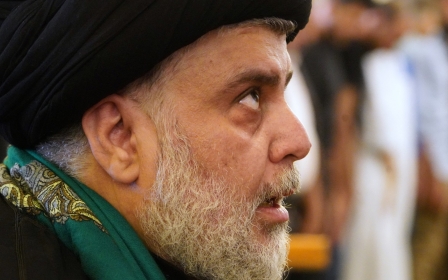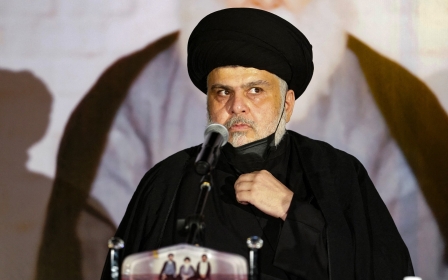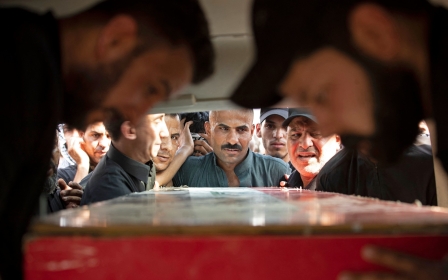Libya floods: Muqtada al-Sadr says disappearance of Lebanese cleric to blame
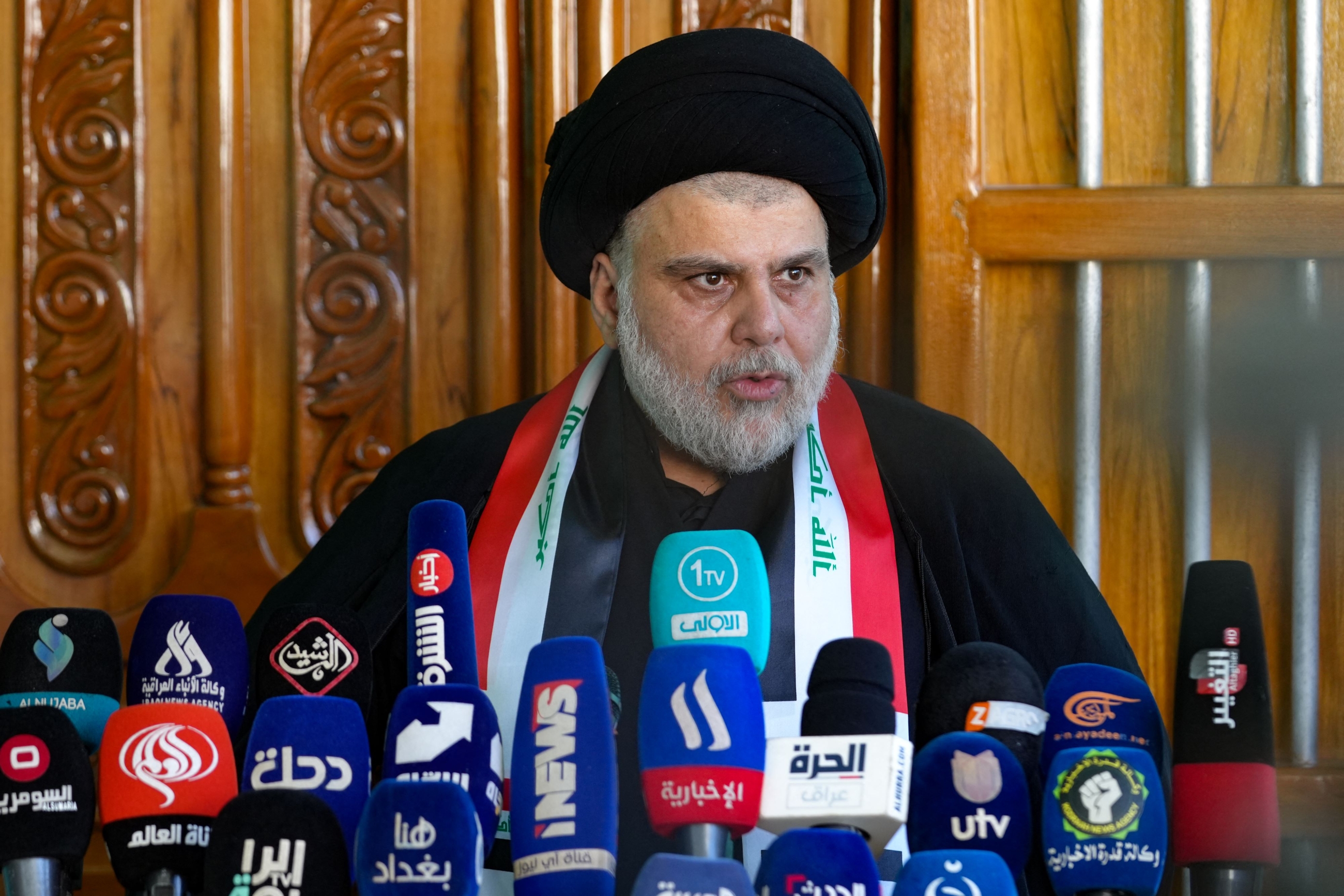
Influential Iraqi cleric Muqtada al-Sadr has blamed the floods in Libya that have left more than 5,000 people dead on the country's involvement in the disappearance of Lebanese cleric Musa al-Sadr in 1978.
Writing on his social media accounts on Tuesday, Sadr listed a litany of causes for the natural disasters that have struck several countries recently - heavily focusing on the worldwide legalisation of same-sex marriage and LGBTQ rights - but singled out Libya over the disappearance of his cousin.
"As for Libya, its sin is unforgivable in not revealing the fate of the master of the Lebanese Arab resistance, Mr Musa al-Sadr," he wrote.
"All of these matters must be taken into consideration... however, we ask God for safety for believing men and women in the east and west of the earth, even in Libya."
In 1974, Musa al-Sadr founded the Amal Movement, a Lebanese political party that promoted the interests of the country's Shia, which were a marginalised and impoverished community at the time.
New MEE newsletter: Jerusalem Dispatch
Sign up to get the latest insights and analysis on Israel-Palestine, alongside Turkey Unpacked and other MEE newsletters
He was invited to visit Libya in 1978 by Muammar Gaddafi and travelled to the North African country with two companions.
The three were last seen on 31 August of that year and their whereabouts remain unknown, though many have accused Gaddafi - who was overthrown in 2011 - of having them killed.
Gaddafi's son Hannibal is currently detained in Lebanon, with authorities insisting he is witholding information about Musa al-Sadr's death.
In 2021, Muqtada al-Sadr announced that a committee had been set up in Iraq to investigate his cousin's disappearance.
On Wednesday, Sadr said that the spread of "immorality and corruption" had provoked natural disasters, particularly in the West.
Chief among these reasons, Sadr said, were: "Legalizing same-sex marriage and imposing it on nations using dirty methods" and normalising relations with Israel.
"The first fruit of normalisation is the spread of the LGBT community," he said.
Sadr has repeatedly attacked the LGBTQ+ community in recent years and has blamed them for a number of natural disasters, including the spread of Covid-19.
Legislation is currently being proposed in Iraq to criminalise homosexuality.
In response to Sadr's comments, Amir Ashour - head of Iraqi LGBTQ+ organisation IraQueer - tweeted: "Is it possible that stupidity and ignorance have continued to this extent?"
Middle East Eye delivers independent and unrivalled coverage and analysis of the Middle East, North Africa and beyond. To learn more about republishing this content and the associated fees, please fill out this form. More about MEE can be found here.


